We’re excited to introduce you to the always interesting and insightful Ethan Goss. We hope you’ll enjoy our conversation with Ethan below.
Hi Ethan, thanks for joining us today. What did your parents do right and how has that impacted you in your life and career?
Both of my parents always have a project. It is more obvious see that with my father. You walk into his house and his projects are on display. In one corner he’ll have an unfinished wooden fly rod that he’s building. He perpetually has new wooden lure designs that he is making and testing out. There’s always a tool that needs to be restored. My father imbued me with a natural curiosity and a love of craft.
My mother wasn’t as obvious about her projects and her creativity. I distinctly remember finding a stack of flower watercolors tucked away in a chest that she never thought were finished. I similarly found a stack of poems tucked away. My mother has a creative gift and an attention to detail that she rarely shared, but was evident in everything that she did.
Growing up my parents encouraged my many different hobbies and interests over the years. They never balked when I started making bow drill kits, trying to build the perfect design. They celebrated my sculpy modeling clay phase. They support me now as I continue to explore my creative passions.
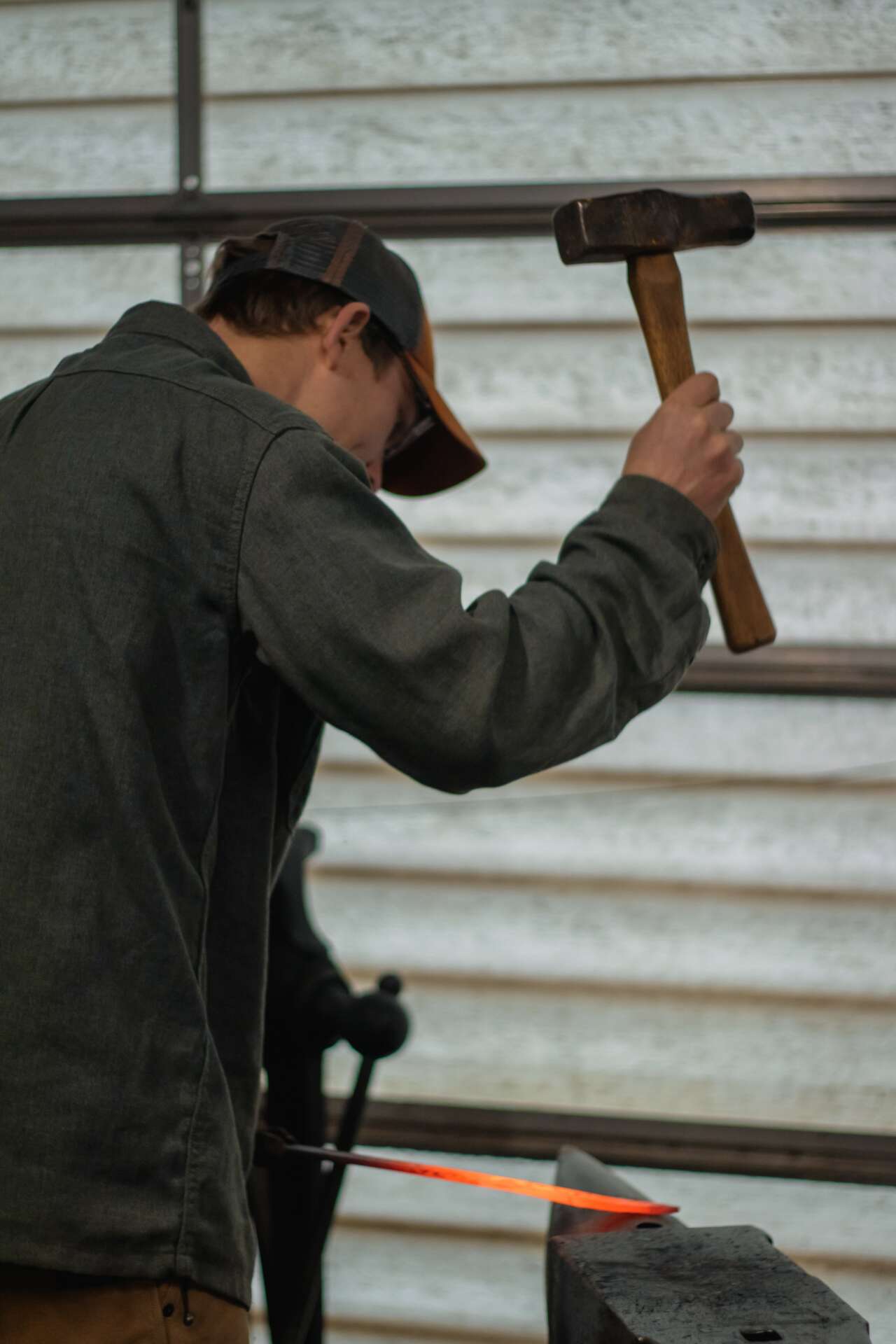
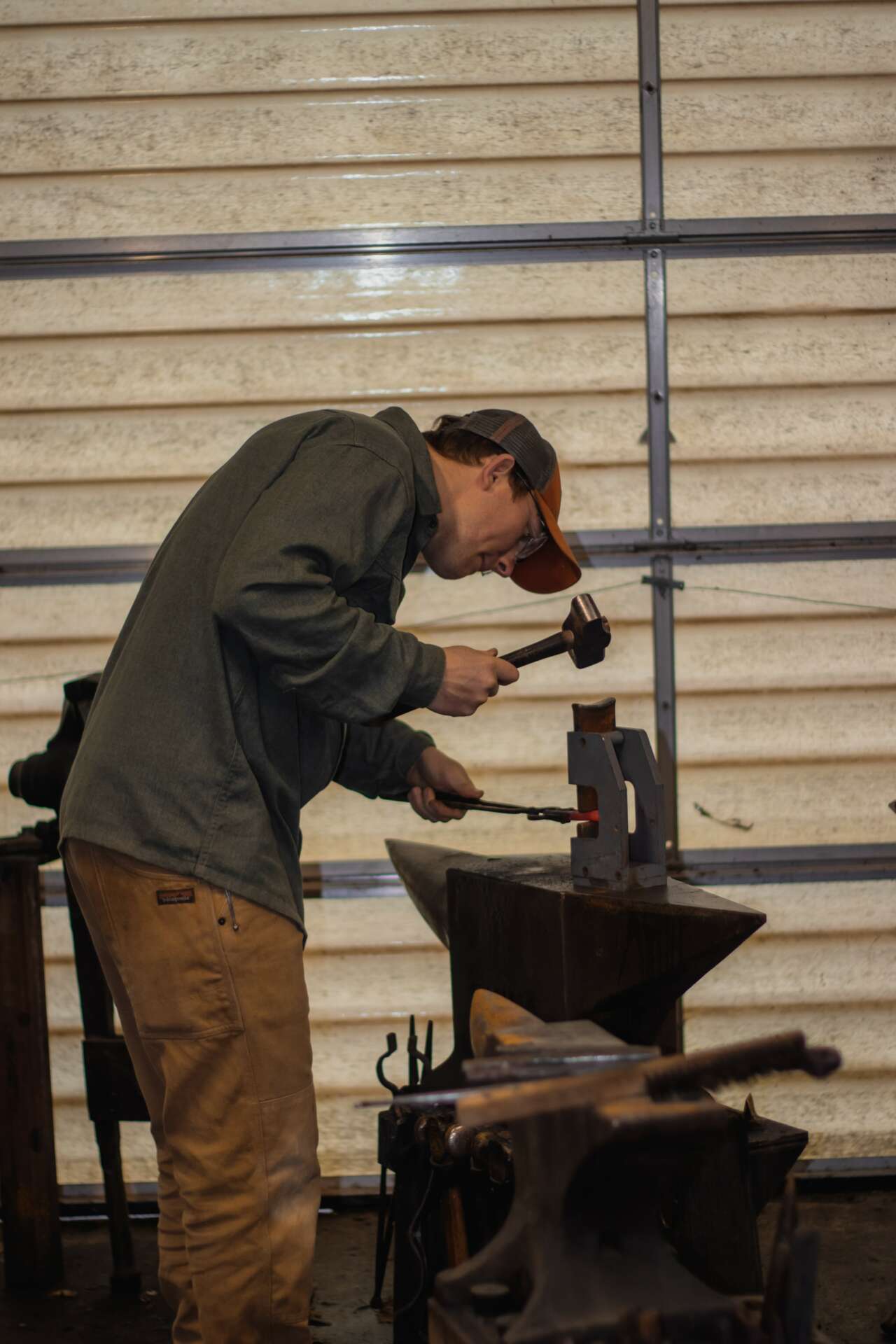

Ethan, love having you share your insights with us. Before we ask you more questions, maybe you can take a moment to introduce yourself to our readers who might have missed our earlier conversations?
I am most known for my axe making/restoration and my bladesmithing work. My business has three different divisions and throughout the years I have focused more or less on each of them. In college I captained and competed on the University of Vermont Timbersports team. We competed in traditional logging sport competitions like pulpwood toss, underhand chopping, log rolling, axe throwing, etc. I gravitated towards the axe related events. This inspired me to get into axe collecting and restoration. I would go comb through antique stores, flee markets and auctions looking for axe that were rare or in good condition. I took the axes that I found, restored them and then used them as practice axes.
After college I took a break from timbersports to focus on working as a forester in Northern Vermont. In my off time, I would go up to a blacksmith’s shop a few miles north of me and take lessons every Tuesday night. In this shop I made fairly basic items like hooks, nails, a hammer and a hatchet. This experience really got me hooked on blacksmithing as a hobby. I lucked into an opportunity to buy my own equipment from a retiring blacksmith and started my shop from there. I primarily make scandinavian style woods knives and kitchen knives because it is what I like to use the most. I pride myself on making a durable, efficient and comfortable knife that will stand the test of time. I am inspired by the traditional knives that my great grandfather brought with him when he immigrated from Norway to the US.
While I was just getting into bladesmithing, one of my former timbersports teammates reached out to me and asked if I would be willing to fix and grind some of the teams race axes. This is what started me down the path to producing the race axes and utility axes I make right now. I soon realized after I accepted this commission that I didn’t know what I was doing and that I needed to get some advice. These axes are precision ground tools that need to be tuned for different wood species. They have an edge that is thinner than most kitchen knives. I reached out to another axe grinder I know, Rob Spry and he was kind enough to answer every question I had. Without him, I wouldn’t be making my own axes.
As axe grinding became a larger part of my business I found that I was having to buy axes from Australia and New Zealand to meet my demand. There was one US manufacturer, but they made 5-10 axes a year and that couldn’t keep up with the demand. I started exploring ways to manufacture my own race axes in 2018. In 2021 I finally found a CNC machine shop that was willing to work with me and produce my designs. I produce 4 different styles of axe for different applications. One is for general home use and the rest are for competition. Each of these axes are made to exacting tolerances to ensure that they perform to the highest level possible.
In your view, what can society to do to best support artists, creatives and a thriving creative ecosystem?
I think our culture is moving towards supporting small businesses and creatives more readily right now. During covid lockdown, people seemed to reach out and look for unique items that were meant to last for years, rather than being a cheap expendable good. I want this trend to continue and I think it will. Buy local. Buy from your friends. Tell your friends about what you just bought.
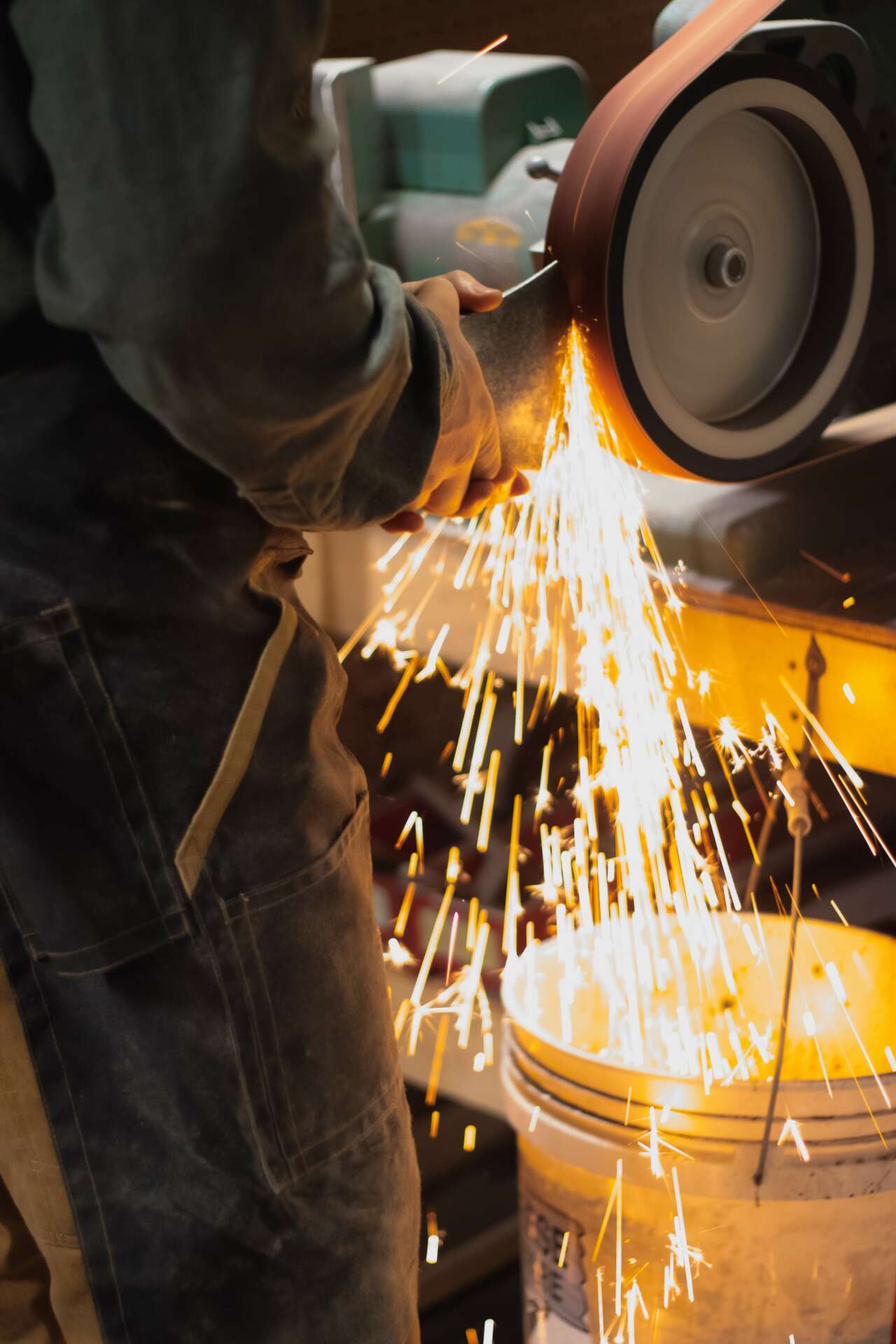
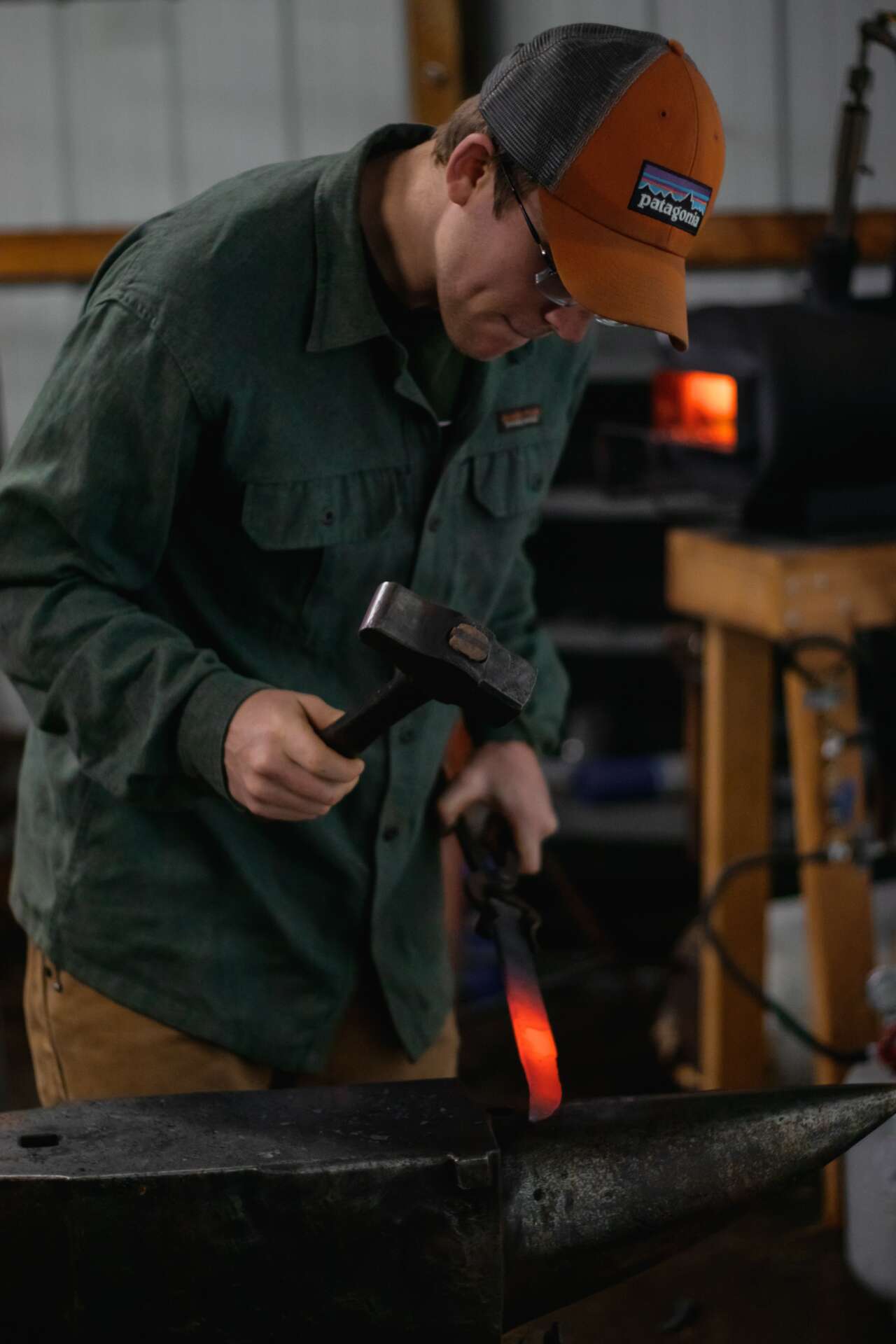
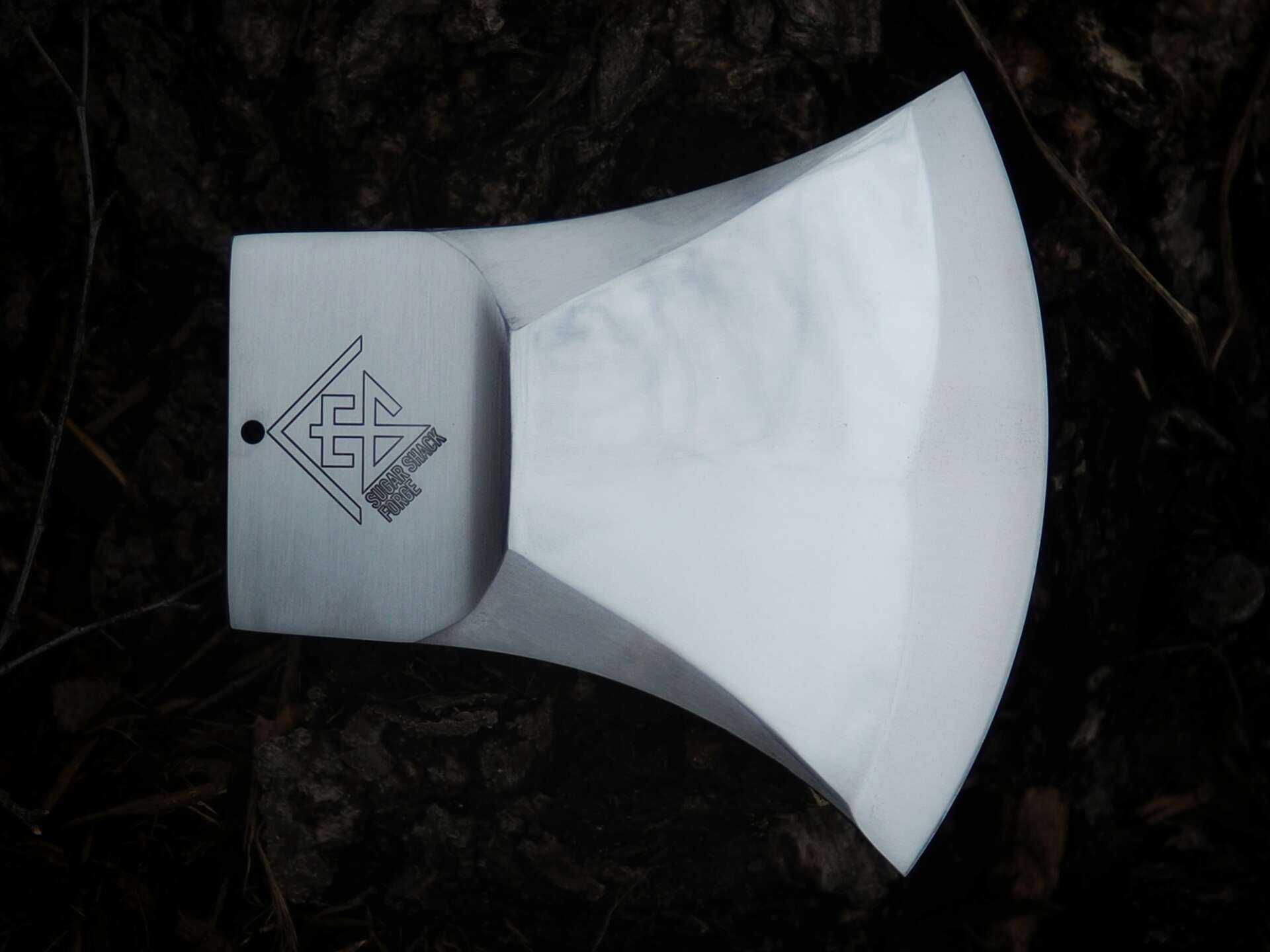
Is there mission driving your creative journey?
My goal is to produce the best product I can, keep production local and still provide an affordable product. My goal is to produce something that can be looked at as a legitimate alternative to a mass produced item for someone like my dad who thinks a $12 burger is expensive.
A large part of my business is still axe restoration. Many of these axes are 100 plus years old. I want the axes I produce to last that long.
Contact Info:
- Website: sugarshackforge.com
- Instagram: https://www.instagram.com/sugarshackforge/
Image Credits
Henry Hess and Merrill Campo


